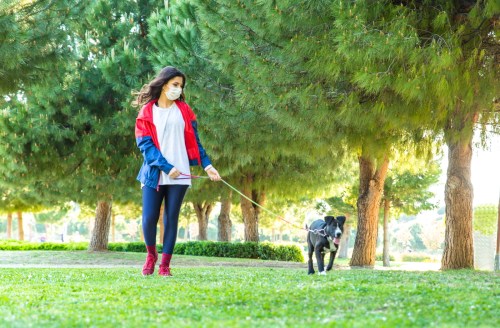Our editors independently select these products. Making a purchase through our links may earn Well+Good a commission
A Podiatrist Names the Summer Shoe You Shouldn’t Walk in for Even a Mile
The question on all of our minds in summertime is, "Are sandals bad for your feet?" A podiatrist says yes, but there are supportive styles out there.

When it comes to movement patterns that promote better digestion, increase longevity, and clear your mental fog, experts all write the same prescription: Walk, walk, and walk some more. There’s the big caveat, though: If you’re not slipping on the right pair of kicks before you venture outdoors, you might be doing your body more harm than good. There’s one type of summer shoe (besides flip flops) that podiatrists say you shouldn’t walk in for more than a mile. I’m very sorry to say that… your sandals aren’t doing your feet any favors on a stroll that’s longer than the one to your mailbox.
Experts in This Article
podiatrist and member of the Vionic Innovation Lab
“When walking, it’s most appropriate to wear walking or running sneakers, which are made for forward motion and offer the most shock absorption, cushioning, and support,” says Jacqueline Sutera, DPM, a New York City-based podiatrist, and Vionic Innovation Lab member. In other words, the buzzwords you hear when shopping for running or walking sneakers—like “bouncy” or “ergonomic”—should be just as important to you as the style of the shoe itself. And, of course, the most important shoe requirement of all is arch support.
“Look for sneakers with a slightly thicker heel than the front of shoes, this is called a ‘heel drop.'” —Jacqueline Sutera, DPM
“Arch supports are not meant to do the work for the foot,” Diane Koshimune, DPM, a California-based podiatrist, previously told Well+Good “Instead, the arch supports are going to offer feedback for the foot to ‘train’ the person wearing the supports to avoid pronating or over-pronating as the hard plastic or other material presses into the bone along the arch. This action over time will help the person fire the appropriate muscles and stand with better posture, so to speak, so that in the future those arch supports are no longer needed.” Your sandals, then, are doing zero to keep your feet in good shape to keep moving forward.
While it’s probably no big deal if you rock a sandal once in a while with your favorite jumpsuit, Dr. Sutera says that problems arise when you continually choose unsupportive styles over ones that are designed with your arch-health in mind. “Short term you can develop blisters, irritations, shin splints, or even sore muscles in legs, feet, and back,” says Dr. Sutera. “Long term effects of walking in unsupportive shoes could lead to worsening of bunions, hammertoes, pinch nerves, heel pain, tendonitis, or even stress fractures.” She also recommends tossing out worn-down shoes that have lost their arch support over miles and miles.
When you’re looking for a new pair of shoes that will support your short and long walks alike, Dr. Sutera says one shoe feature is a dead giveaway that you’ve found yourself one supportive shoe. “Look for sneakers with a slightly thicker heel than the front of shoes, this is called a ‘heel drop,” she says. Brooks Ghost 13 ($130, or Ghost 12 ), New Balance Fresh Foam 1365 ($110), or Vionic’s Tokyo Sneaker ($130) all fit the bill.
And okay, okay: If you still can’t quite shake the urge to strap on your sandals, keep an eye out for ones that have the all-important heel drop (like these). Open-toed can be supportive, too.
Sign up for the Well+Good SHOP Newsletter
Get exclusive deals on wellness, beauty, fitness, and food products that have been hand-picked by our editors.
Got it, you've been added to our email list.







